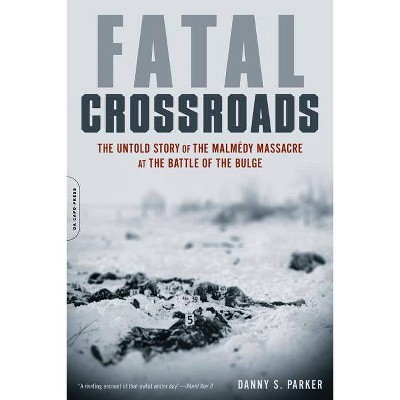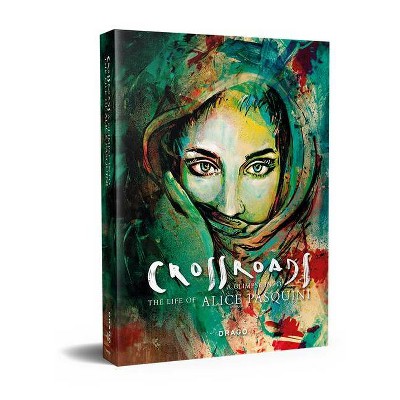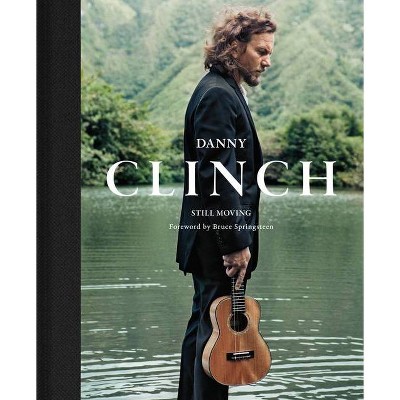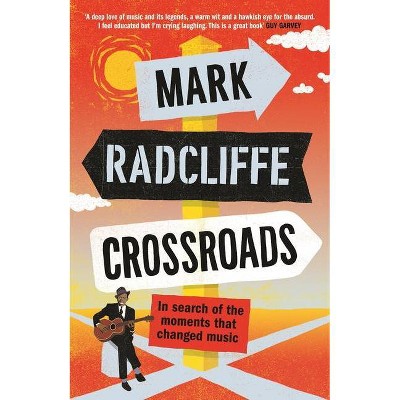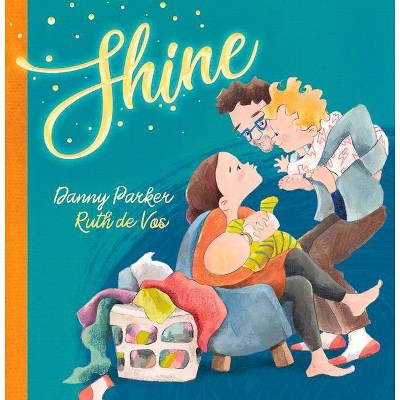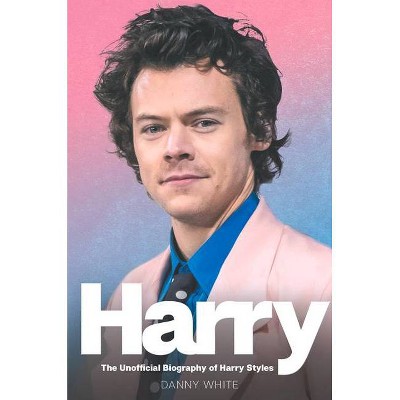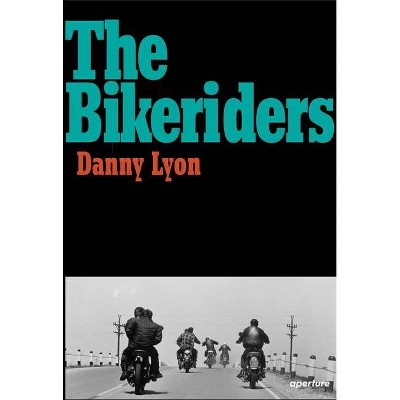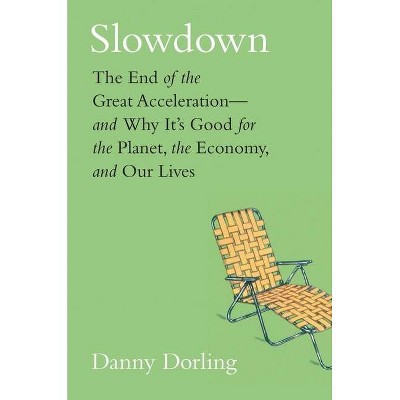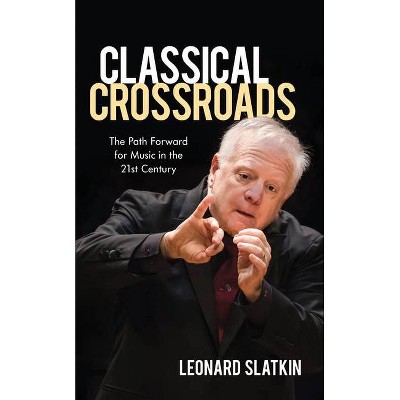Bloody Crossroads 2020 - by Danny Goldberg (Hardcover)
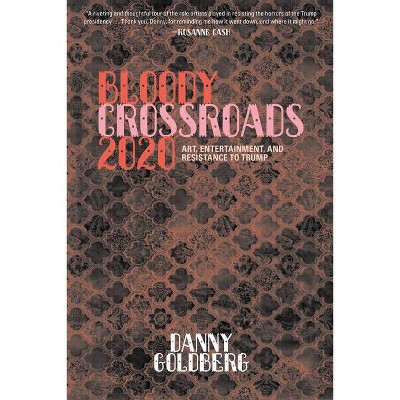
Similar Products
Products of same category from the store
AllProduct info
<p/><br></br><p><b> Book Synopsis </b></p></br></br><p><b>A deep dive into the role that mass-appeal movies, television, videos, and music played in Donald Trump's failed reelection campaign, including brand-new interviews with some of the major players.</b><p><i>Bloody Crossroads 2020</i> is a riveting and thoughtful tour of the role artists played in resisting the horrors of the Trump presidency. Danny Goldberg provides a bracing and thorough recollection that is both a service and a reminder for artists to stay engaged and awake. To counter those who continually tell me to 'shut up and sing, ' I will buy a couple of crates of this book and get my marching boots polished. Thank you, Danny, for reminding me how it went down, and where it might go.<br>--Rosanne Cash<p>The people who produce our popular culture--the performers and makers of TV shows and movies and music and the rest--are nearly all on the political left. (Which drives the right crazy; <i>crazier</i>.) Danny Goldberg--impresario, activist, mensch--knowingly and passionately chronicles how and why more of his fellow culture-makers than ever enlisted in the fight to save American democracy in 2020. Our annus horribilis had a political happy ending, and <i>Bloody Crossroads 2020</i> is its star-studded souvenir program.<br>--Kurt Andersen, author of <i>Evil Geniuses</i> and <i>Fantasyland</i><p>Music and politics have been the twin engines driving Danny Goldberg for decades. In his latest work he explores how these culture-defining machines left a wannabe king in the dust.<br>--Nelson George, author of <i>Hip Hop America</i><p><em>Bloody Crossroads 2020</em> takes a deep dive into the role that mass-appeal movies, television, videos, and music played in America's political culture in the year of Donald Trump's failed reelection campaign. The book also explores the impact of entertainment celebrities in communications, fundraising, and campaigning to support the election of Joe Biden.<p>Although there existed a decades-old tradition of liberal Hollywood, Trump's ascension to the presidency in 2016 triggered an unprecedented level of engagement by artists and performers. Within days of the 2016 election, a critical mass of entertainers, from teenagers to the last survivors of the World War II generation--blockbuster movie stars, art-film auteurs, Broadway dramatists, comedians, and musicians from the worlds of classical, country, pop, rock, R&B, and hip-hop--all seemed to have heard the tom-tom beat of resistance at the same moment and amplified a moral alternative to Trumpism. That level of engagement intensified with rare passion and purpose in the period of 2020 chronicled in <i>Bloody Crossroads 2020</i>--the Democratic primaries, the COVID-19 pandemic, the aftermath of the murder of George Floyd, the conviction of sexual predator Harvey Weinstein, and the 2020 general election campaign--culminating in Trump's failed insurrection.<p>Exhaustively researched, <i>Bloody Crossroads 2020</i> draws from brand-new interviews with Bruce Springsteen, John Legend, Rosanne Cash, David Simon, Adam McKay, Chuck D, David Corn, Mandy Patinkin, and many more. It also explores the important political activities of entertainers like Stephen Colbert, Trevor Noah, Taylor Swift, Cardi B, Alyssa Milano, Mark Ruffalo, Jane Fonda, Robert De Niro, Bette Midler, Steven Spielberg, Spike Lee, Ava DuVernay, Dave Chappelle, Chris Rock, and Wanda Sykes.<p><i>Bloody Crossroads 2020</i> expertly dissects and celebrates how the empowering actions of artists and entertainers helped a record turnout of everyday citizens realize a triumphant 2020 election.</p><p/><br></br><p><b> Review Quotes </b></p></br></br><br><p>"Donald Trump's loss in the 2020 presidential election was a relief to many Americans, and here, Goldberg sheds light on the power of the media and the role it played in such an outcome. The book features interviews with an array of celebrities, as well as research and analysis to demonstrate how entertainers and art itself helped empower America to vote our former president out of office."<br>--<i>Alta</i></p><p>"A cleareyed overview of the modern interaction of culture and politics."<br>--<i>Kirkus Reviews</i></p><p>"Danny Goldberg has spent his career navigating the 'bloody crossroads' of culture and politics. He has applied that experience and insight to produce this panoramic portrait of how popular culture, from movies to music to television, responded to the unprecedented provocations and polarization of Donald Trump's presidency. This is an indispensable and urgent document for anyone trying to understand the collision between Trump's vision of restoring a fading social and racial order and the artists in every field who are forging a new American identity through their works."<br>--Ronald Brownstein, author of Rock Me on the Water: 1974--The Year Los Angeles Transformed Movies, Music, Television, and Politics</p><p>"I didn't think there was a place in politics for people in show business until I read <i>Bloody Crossroads 2020</i>."<br>--Al Franken</p><p> </p><p>Critical praise for <em>In Search of the Lost Chord: </em></p> <p>"A legendary steward of the hip musical world . . . Goldberg plunges into a thorough, panoramic account of the culture, politics, media, music and mores of the year to demolish the idea that it was trivial . . . Goldberg's deep purchase on his subject and his storytelling ease make it fresh." <br>--Sheila Weller, <em>New York Times Book Review</em></p> <p>"[Goldberg's] newest book, <em>In Search of the Lost Chord: 1967 and the Hippie Idea, </em> explores and fuses together the musical, political and spiritual revolutions of the time into a narrative about a moment when 'there was an instant sense of tribal intimacy one could have even with a stranger.'" --<em>Rolling Stone</em></p> <p>"Goldberg brings a personal passion that itself illustrates the lasting resonance of the hippie era." --<em>Publishers Weekly</em></p> <p>"Danny Goldberg's <em>In Search of the Lost Chord: 1967 and the Hippie Idea</em> resonates with today's activist readers . . . Goldberg uses the afterword to bounce these ideas off our current political landscape and it's quite revelatory. That same chord that was ringing in the ears of some of those hippies of 1967 is now ringing in the ears of those with their boots on the ground in their own respective resistance movements today." --<em>PopMatters</em></p> <p>"A reminiscence of the time that brought us <em>Sgt. Pepper</em> and the Summer of Love . . . [A] genial you-were-there memoir of a golden age." --<em>Kirkus Reviews</em></p> <p>"Written with the acuity of someone who lived through the times he writes about, this is a thoughtful and wide-ranging exploration not just of one year in history but also of a culture and a way of thinking that continues to reverberate today." <br><em>--Booklist </em></p> <p>"[Goldberg's] analysis of what it meant to be a hippie in 1967--sans cartoon clichés--recounts the pursuit of wisdom and joy, as well as a crazy quilt of counterculture cool. And despite the demarcation insisted on by some, he shows that spirituality, activism and business are not incompatible." --<em>High Times </em></p> <p>"Antiwar radicals, recoiling from soullessness, challenged the church of technocratic rationality. Taking this challenge seriously, recovering the mood of an extended moment, requires beginning earlier and ending later than 1968. Cultural upheaval cannot be confined by the calendar. At least one contribution to the literature, the music industry executive Danny Goldberg's <em>In Search of the Lost Chord</em>, treats 1967 as the defining moment when 'the hippie idea' still held transformational promise, and countercultural protest had not yet succumbed to police violence, undercover provocateurs, or media caricature--while 1968, in contrast, was a dark time of assassinations, riots, and the resurgence of the right." --<em>New York Review of Books</em></p> <p>"Out now in paperback, <em>In Search of the Lost Chord</em> contains a good bit of reflection and nostalgia, not from the perspective of a participant in the events of 1967 but from a teenager observer in New York, feeling the vibes and watching as the world tilted on a different angle." --<em>Shepherd Express</em></p> <p>"[Goldberg] conducts a survey of the hippie universe of that particular moment, touching on the rival hippiedoms of San Francisco and New York, the philosophical avatars of LSD, the wisdom of Allen Ginsberg, the grandeur of the Grateful Dead and other exemplars of the 'San Francisco Sound, ' the New Left radicals and Black Power militants (as seen from a hippie standpoint), and the underground press." <br>--<em>Tablet Magazine</em></p> <p>"Danny Goldberg is a relentless tracker of people. However elusive this Lost Chord may be, Danny G. searches it out and nails it to the tree flesh. Eternity now! 1967 forever!" --Wavy Gravy</p><br><p/><br></br><p><b> About the Author </b></p></br></br><p>Danny Goldberg is the author of the acclaimed books <em>How The Left Lost Teen Spirit, Bumping into Geniuses, In Search of the Lost Chord: 1967 and the Hippie Idea</em> (Akashic, 2017) and <em>Serving the Servant: Remembering Kurt Cobain</em>. He began his career in 1969 with <em>Billboard</em>, for whom he reviewed the Woodstock Festival, and later wrote for <em>Rolling Stone</em> and <em>Crawdaddy</em>. He worked as a personal manager for Nirvana, Bonnie Raitt, the Allman Brothers Band, and Sonic Youth, and was president of several major record companies. He currently runs Gold Village Entertainment, a management company whose clients include Steve Earle, Martha Wainwright, and the Waterboys. Goldberg is former chair of the ACLU of Southern California, serves on the board of Public Citizen, and frequently writes about politics and culture for the <em>Nation</em>.</p>
Price History
Price Archive shows prices from various stores, lets you see history and find the cheapest. There is no actual sale on the website. For all support, inquiry and suggestion messagescommunication@pricearchive.us
